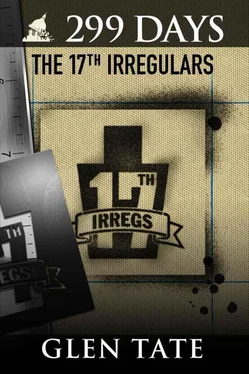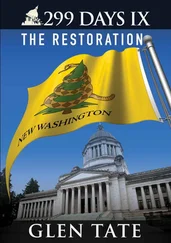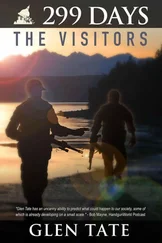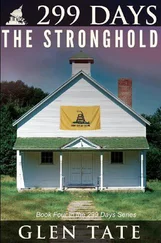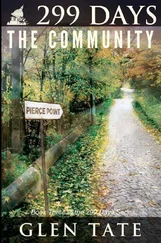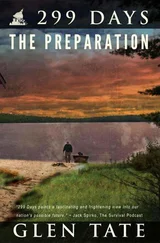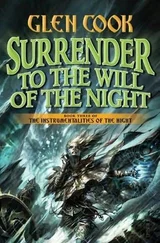The Patriot military forces made contact with Joe, who was an Oath Keeper and it was likely he would be receptive to the Patriot’s request of him.
One day, a visitor, Lt. Cmdr. Travis Dibble, came ashore to Joe’s facility. He was a young guy, in his late twenties, which was very young to be a lieutenant commander, essentially the equivalent of a major. But Joe realized why a young guy like Dibble was a lieutenant commander: he had a military academy ring on. The writing was too small to see, but it was probably Annapolis.
Lt. Cmdr. Dibble had a letter from the General of the Washington State Guard. The letter conferred “privateer” status on Joe and made him immune from any prosecution by the Patriots, provided he maintained “good behavior” during his work for the Patriots. Lt. Cmdr. Dibble explained that Joe and his men could keep whatever they needed from the supplies they recovered, but would be expected to give the remainder to the Patriots. It would be on the honor system. A Patriot vessel would appear periodically to take back supplies Joe’s men “liberated.”
Dibble was very clear: if Joe’s crew acted like pirates, they would be treated like pirates. Dibble knew of Joe’s Oath Keeper background and said he did not expect there to be any problems.
“Besides,” Dibble said holding up a GPS unit, “If you guys start freelancing as pirates, we can let the Limas know where you’re at.” He read off to Joe the exact latitude and longitude. “It would take about an hour,” Dibble said, “for the Lima airstrike or helicopter assault to annihilate this place.” That was an effective deterrent to becoming pirates.
Joe used the privateer letter to do some good things for the Patriots. They started small. They didn’t have a lot of diesel, so they didn’t patrol outside of the immediate area of the compound. They boarded about a dozen ships that came near their area. Most ships were carrying people who were getting out of the cities. Three were smugglers. They weren’t hardened pirates. One boat was full of drugs and alcohol. Joe kept the alcohol, but dumped the drugs. Two other vessels were full of ammo, food, fuel, and medicine. They kept all of it; they needed the supplies. They captured the two smugglers who were not dangerous and turned them into laborers at the compound. The smugglers were grateful for their fate.
One vessel caused them problems. It was operated by a small band of pirates who were definitely very bad guys and were a drugged out gang on the water, which significantly degraded their combat effectiveness.
The pirates fired on one of Joe’s patrol boat at a very long range, which was a very big mistake. Joe’s boat radioed to the second boat and the chase was on. It lasted about 20 minutes. Joe’s boats got within range and let loose with the M240s that the Marines brought with them. They had to be careful not to sink the pirate boat because they wanted the loot. They disabled the boat, got closer, and had the Marines take the pirates out with rifle fire. Man, those Marines could shoot accurately, even on bobbing water.
They recovered a huge treasure of gold and silver. The vessel also held guns, most of which were high-end antiques and obviously stolen. They recovered some ammo, alcohol, and food. Joe kept half the gold and silver and planned to buy more diesel with it. It was reimbursement for the expenses he had made while doing the patrols, especially the diesel fuel. He gave the alcohol to his men, of course.
Joe put aside the other half of the gold and silver, and all the antique guns, for the Patriot vessel to retrieve. The Patriots were very happy to have the gold and silver. Revolutions cost money; lots of money.
Joe was a little disappointed at the privateering. He thought he would make more money at it than he was, though it wasn’t like he was doing it for profit. He was doing it to pay his expenses. The fuel he used to patrol was very valuable. He would go out on the water and fight all the Patriots wanted as long as they would get him the diesel.
Joe had plenty to feed his guys. They still bartered in town with people for security, which was his main source of income. They grew some of their own food and gathered lots of seafood. They weren’t doing without, but Joe knew that he had some very valuable guys working for him who had options in the marketplace. He had to do something to keep his guys paid and happy.
Then he got a call from his old friend in town, Bruce Cohutt. Bruce was in his fifties with silver hair and was very distinguished looking. He had come from Georgia and still had a Southern drawl. Bruce was originally a financial adviser but came to Washington State to take over his father-in-law’s boat parts shop. They made custom boat parts for yachts, which was one of the only manufacturing businesses left in the county.
Bruce had always liked Joe. He wasn’t like the Yankee wimps up there. Bruce loved to shoot and Joe had invited him out to the compound a few years ago. They had something else in common: the county was trying to shut both of them down. They wanted to shut down Joe because he had a shooting range that bothered a county commissioner living a mile away, and they were out to get Bruce because he employed people who didn’t work for the government. It really seemed like the county wanted to control all economic activity. They came after Bruce’s boat shop with “environmental” concerns, even though Bruce complied with, or exceeded, all regulations.
“Joe, can you come into town for a meeting?” Bruce asked on the phone.
“What for, Bruce?” Joe asked.
“A business proposition,” Bruce said. “You’ll see. I won’t be wastin’ your time.”
“Sure,” Joe said and they made arrangements for the time.
“Where will we meet?” Joe asked.
“At the bank,” Bruce answered. “The old one.” All the other bank branches in town were for large corporate banks. The old one was a historic building that had been built in 1890.
“Why there?” Joe asked.
Bruce chuckled. “You’ll see.”
Joe went to the meeting with a small group of four guards. There wasn’t too much crime in town, but Joe still travelled with security. While no one outside of his compound knew it or could know about it, Joe was a Patriot privateer. Although his role as a Patriot privateer was highly confidential, he couldn’t be too safe, so it was best to take some guys in case there were any Loyalist bounty hunters out and about.
Besides, Joe was in the security business. He needed to show people he traveled with plenty of security. He had a PSD, or personal security detail, of four of the military contractors from the Dirty Dozen. Led by Andy “Booger” Borger, the former Ranger, the PSD looked like they were protecting a Congressman when they moved around. It was the perfect image Joe wanted to convey. He didn’t need to feel important, but he needed everyone to see that Joe’s guys were the ones they came to for security services. That’s how he made a living.
Joe and his PSD met Bruce at the bank, who was there with his favorite rifle, a wood-gripped FAL.
Bruce introduced everyone and they sat down. “We’re thinking about starting a bank,” Bruce said.
Joe instantly knew why he was there.
“We need a bank in this town,” Bruce continued. “It’s hard to do business without one. Businesses will need loans at some point, and even if you’re not a business, it’s hard to live without a safe place to put money. What if some gang sweeps through here, like they did over in Port Angeles? People are keeping everything to themselves. We need a big ole’ safe deposit box,” Bruce said, motioning to the historic bank. “Here it is.”
“Bank” and “banker” had slowly become dirty words over the past few months. People hated them—and for good reason. The old banks had been closed since May Day. The government had taken everyone’s deposits and retirement accounts, and the banks were very happy to help in the largest theft in the history of the world. Tens of trillions of dollars.
Читать дальше
